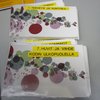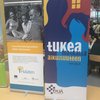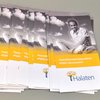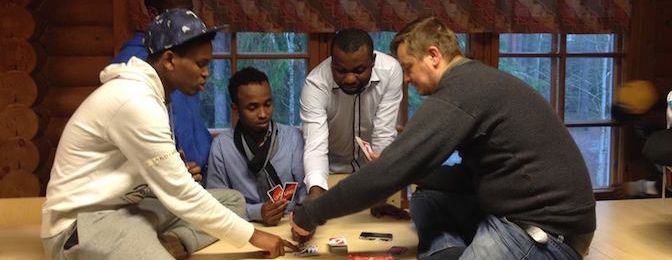
Hearing the children
Low-threshold activities, supporting families and promoting child protection form the basis for the work of the research group Empowering Children and Young People. The aim is to strengthen the status of children and youths in every which way, and hearing their wishes in society.
Text: Tiia Merikanto and Marita Skippari
Photos: Satu Koskiniemi, Anna Hämäläinen, Tiia Merikanto and Marita Skippari
The research group works for the benefit of children in seven different projects, for example in the HALATEN – From Vulnerable Childhood to Healthy and Safe Adulthood project, which is funded by the European Social Fund.
Every year, approximately 150 unaccompanied refugee children or youths arrive in Finland. In a foreign environment and without language skills it might be difficult for them to find their place. The HALATEN project supports the integration of unaccompanied refugee youths and promotes the competence of those working with them. The Finnish Institute of Migration is responsible for the research part of the project.
Turku University of Applied Sciences contributes to the project in terms of both project staff and student work: altogether over 100 students from the degree programmes in Physiotherapy, Occupational Therapy and Social Services have participated in the project. The students have, for example, created a mapping form to enquire the leisure time interests of immigrant youths.
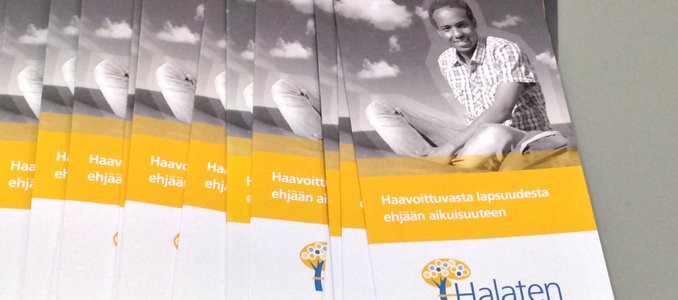
To support the form, the students have also created folders of hobby-themed picture and word pairs. With the help of the pairs it is easier for those who don’t speak that much Finnish to understand the questions. Later on the aim is to produce the support material for web use, too.
“Spending time together was the best part”
Hobbies and all functional activities, such as different sports, have proven to be a good way to be together, interact and learn the language. In the HALATEN group implementations in the autumn of 2014, the refugee youths have tried out different sports together with TUAS’ students.
“The youths have been heard in this, too. The amount of sports turns and sports such as futsal have been increased based on the wishes”, says the HALATEN Project Manager Outi Arvola.
Immigrant youths are often lonely or have very few contacts with Finnish youths. They also say that they appreciate the time spent together with Finnish youths at camps and group meetings.
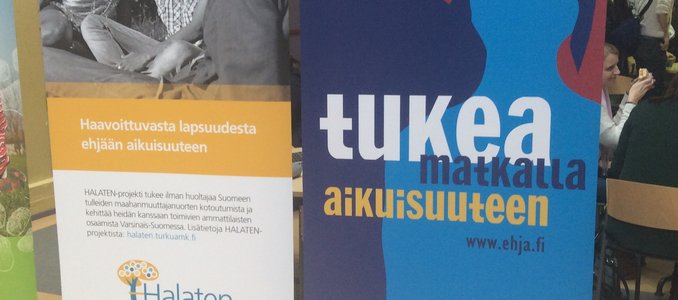
Important stages in the integration process also include finding a school and study place and a profession. Tutored homework clubs and support person work have assisted in the learning. Organising them in cooperation with associations has been planned for the future.
Steps on the service path
The need for help of each youth has to be examined on an individual level. For the practical work, a service path description has been created with the expert network in Southwest Finland. The description compiles the different phases of the person who has arrived unaccompanied. The path guides the unaccompanied refugee youth from arrival to the country to granting asylum and residence permits and integration services to independent life.
The stages of integration include guiding to studies and leisure activities, Finnish studies and gaining basic information on the Finnish society. The need for support is often great in the beginning. Once the integration progresses, the supply of authoritative services for youths decreases in stages.
The modelling of the service path description includes generalisations, because the ways of action still vary between municipalities. The work benefits an extensive expert network, which has gathered facts about the integration work done in the municipalities within the region. Interaction with different authorities is necessary and the description should be updated also in the future.
How and when can families be helped?
At the core of the Empowering Children and Young People research group is a multiprofessional network of 14 expert members. Exchanging knowledge and competence is necessary, because the family situations are complex and often the service providers only have knowledge on their own sector.
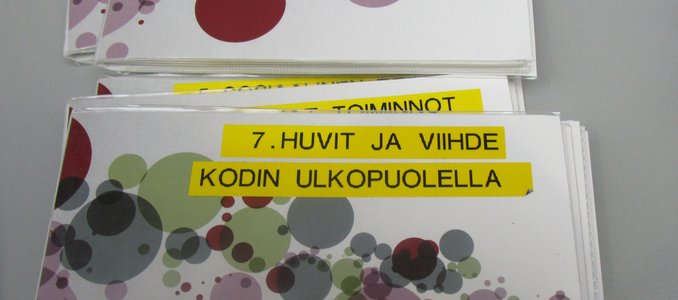
“We cannot think that only the inclusion of children should be reinforced. Children and youths generally live in families, and thus cooperation with the families is very important. In addition, we have to consider the entire service system and how it could be developed for the benefit of the children”, says Leader of the research group, Lecturer Eeva Timonen-Kallio.
“One of the sectors is child protection. Recently the importance of preventive care and early intervention in problems have been more emphasised than before”, Timonen-Kallio states.
Two of the research group’s ongoing projects are international, and the rest are local in cooperation with the City of Turku and actors in the municipalities within the region.
Of large projects, the three-year RESME has together with six other European university partners mapped the cooperation between child protection and psychiatry, compared the special qualities of the service systems in the participating countries and shared best practices. The results include e.g. consistent work practices and a continuing education entity for experts in the field.
Student exchange and education are organised jointly by the universities within the COHSE4 project in Botswana, Swaziland and Tanzania. In the latest training, the focus was on family work.
“We also have a project titled “Yhdessä kasvattaen” (“Bringing up together”) with the City of Raisio, which has been active in taking the initiative in the development in family work. The project has created families with children the opportunity to seek help and support at their local library. We are happy to be involved in new experiments of this kind”, Timonen-Kallio says.
Further information:
